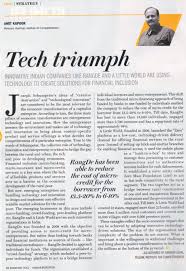The Impact of Technology on Modern Society
Technology has become an integral part of our daily lives, influencing how we communicate, work, and entertain ourselves. From the advent of the internet to the proliferation of smartphones, technological advancements have reshaped the world in ways unimaginable just a few decades ago.
Communication Revolution
The way we communicate has been transformed by technology. Social media platforms, instant messaging apps, and video conferencing tools have made it easier than ever to stay connected with people across the globe. This instant connectivity has not only enhanced personal relationships but also revolutionised how businesses operate, allowing for seamless collaboration regardless of geographical boundaries.
Workplace Transformation
Technology has significantly altered the workplace landscape. Automation and artificial intelligence are streamlining processes and increasing productivity. Remote working tools have enabled employees to work from anywhere, providing flexibility and improving work-life balance. However, these changes also bring challenges, such as the need for continuous upskilling to keep pace with technological advancements.
Healthcare Advancements
In healthcare, technology is playing a crucial role in improving patient outcomes. Telemedicine allows patients to consult doctors remotely, while wearable devices monitor health metrics in real-time. Furthermore, advancements in medical research are being accelerated by technologies like AI and big data analytics, leading to more personalised and effective treatments.
Challenges and Considerations
Despite its benefits, technology also poses challenges that society must address. Issues such as data privacy, cybersecurity threats, and digital addiction require careful consideration and regulation. Ensuring that technology serves humanity positively involves balancing innovation with ethical considerations.
The Future of Technology
The future promises even more exciting developments in technology. Emerging fields such as quantum computing, augmented reality, and biotechnology hold immense potential to further transform society. As we move forward, it is essential to harness these technologies responsibly to create a sustainable and equitable future for all.
In conclusion, technology continues to be a driving force behind societal change. Its impact is felt across all sectors of life—enhancing our capabilities while presenting new challenges that require thoughtful solutions.
The Benefits of Technology: Enhancing Communication, Efficiency, and Sustainability
- Improved communication and connectivity with people worldwide
- Enhanced efficiency and productivity in various industries
- Facilitates access to a vast amount of information and resources
- Enables remote work opportunities and flexible working arrangements
- Advancements in healthcare technology lead to better treatments and outcomes
- Automation of repetitive tasks frees up time for more creative pursuits
- Provides platforms for learning, skill development, and online education
- Contributes to environmental sustainability through digital solutions
Challenges of Technology: Privacy, Security, Access, and Dependency
Improved communication and connectivity with people worldwide
One of the significant benefits of technology is the enhanced communication and connectivity it offers, allowing people to interact with individuals from around the world effortlessly. Through various digital platforms and tools, such as social media, messaging apps, and video conferencing services, geographical barriers are virtually eliminated, enabling real-time communication regardless of distance. This interconnectedness fosters collaboration, cultural exchange, and the sharing of ideas on a global scale, promoting understanding and unity among diverse communities.
Enhanced efficiency and productivity in various industries
Technology has significantly enhanced efficiency and productivity in various industries, revolutionising traditional processes and workflows. Automation, artificial intelligence, and data analytics have streamlined operations, reduced manual labour, and improved accuracy in tasks. By implementing technology-driven solutions, businesses can achieve higher output levels with fewer resources, leading to increased profitability and competitiveness in the global market. This boost in efficiency not only benefits companies but also results in faster delivery of goods and services to consumers, ultimately enhancing overall economic growth and development.
Facilitates access to a vast amount of information and resources
Technology plays a pivotal role in facilitating access to a vast amount of information and resources, revolutionising the way we learn and acquire knowledge. With just a few clicks, individuals can explore an extensive array of educational materials, research papers, and online courses that were previously inaccessible. This democratization of information empowers people from all walks of life to expand their horizons, stay informed, and pursue their interests with unprecedented ease and efficiency.
Enables remote work opportunities and flexible working arrangements
Technology has revolutionised the way we work by enabling remote work opportunities and flexible working arrangements. With the advent of digital communication tools, employees can now collaborate effectively from different locations, leading to increased productivity and cost savings for businesses. Flexible working arrangements allow individuals to achieve a better work-life balance, reducing commuting time and improving overall job satisfaction. This pro of technology not only benefits employees by providing greater autonomy but also empowers companies to tap into a global talent pool and adapt to changing business demands with ease.
Advancements in healthcare technology lead to better treatments and outcomes
Advancements in healthcare technology have revolutionised the field, leading to better treatments and outcomes for patients. From cutting-edge diagnostic tools to innovative treatment methods, technology has enabled healthcare professionals to deliver more precise and personalised care. Medical devices, telemedicine platforms, and electronic health records have streamlined processes, improved efficiency, and ultimately enhanced patient outcomes. By harnessing the power of technology, the healthcare industry continues to make significant strides in improving quality of life and increasing life expectancy for individuals around the world.
Automation of repetitive tasks frees up time for more creative pursuits
The automation of repetitive tasks through technology offers a significant benefit by liberating valuable time that can be redirected towards more creative and innovative endeavours. By streamlining routine processes, individuals and organisations can focus their energy on tasks that require critical thinking, problem-solving, and creativity. This shift not only enhances productivity but also fosters a culture of innovation, enabling individuals to explore new ideas and solutions that can drive progress and growth in various fields.
Provides platforms for learning, skill development, and online education
Technology has revolutionised the way we approach learning and skill development by providing accessible platforms for online education. Through e-learning websites, virtual classrooms, and interactive tutorials, individuals can enhance their knowledge and acquire new skills from the comfort of their own homes. This flexibility not only caters to diverse learning styles but also opens up opportunities for lifelong learning and professional development, empowering individuals to thrive in a rapidly evolving digital world.
Contributes to environmental sustainability through digital solutions
Technology plays a pivotal role in promoting environmental sustainability through the development and implementation of digital solutions. From smart energy management systems to efficient waste recycling processes, technology enables businesses and individuals to reduce their carbon footprint and adopt eco-friendly practices. By leveraging digital tools, organisations can monitor and optimise resource usage, leading to improved efficiency and conservation of natural resources. Additionally, innovations such as remote working options and digital communication platforms help minimise the need for physical travel, thereby reducing greenhouse gas emissions and contributing to a more sustainable future for our planet.
Privacy concerns
Privacy concerns have emerged as a major con of technology, as the collection and potential misuse of personal data have become increasingly prevalent. With the proliferation of digital platforms and interconnected devices, individuals are often unaware of the extent to which their personal information is being gathered and utilised. From targeted advertising to data breaches, the erosion of privacy poses a serious threat to individual autonomy and security in the digital age. Addressing these privacy issues requires robust regulations, transparent data practices, and heightened awareness among users about their rights and how their data is being handled.
Cybersecurity threats
Cybersecurity threats pose a significant con of technology due to the interconnected nature of technology systems, which renders them vulnerable to malicious cyber attacks. These attacks can result in devastating consequences, including data breaches that compromise sensitive information and financial losses for individuals and organisations. The ever-evolving landscape of cyber threats highlights the importance of robust cybersecurity measures to safeguard digital assets and maintain trust in online interactions.
Digital divide
The digital divide represents a significant con of technology, as not everyone has equal access to digital tools and resources. This disparity in access can exacerbate existing socio-economic inequalities, creating barriers for those who are unable to benefit fully from the opportunities that technology offers. Without adequate access to technology, individuals may struggle to access educational resources, job opportunities, and essential services, further widening the gap between the digitally connected and disconnected populations. Addressing the digital divide is crucial in ensuring that technology serves as a tool for empowerment rather than a source of exclusion.
Dependency and addiction
Excessive reliance on technology can result in dependency and addiction, posing significant risks to mental well-being and interpersonal connections. The constant need for digital engagement can lead to feelings of isolation, anxiety, and even depression as individuals become increasingly detached from real-world interactions. Moreover, the addictive nature of technology can hinder the development of meaningful relationships, as face-to-face communication and genuine human connection take a back seat to virtual interactions. It is crucial to recognise and address the negative impacts of technology dependency to safeguard mental health and nurture authentic relationships in an increasingly digital world.



